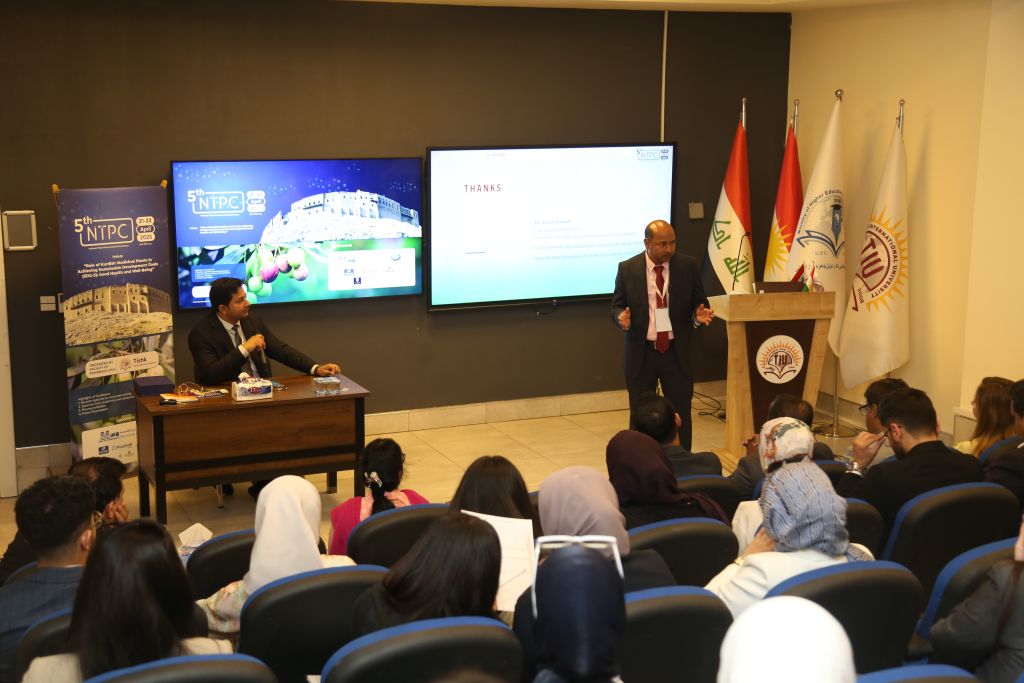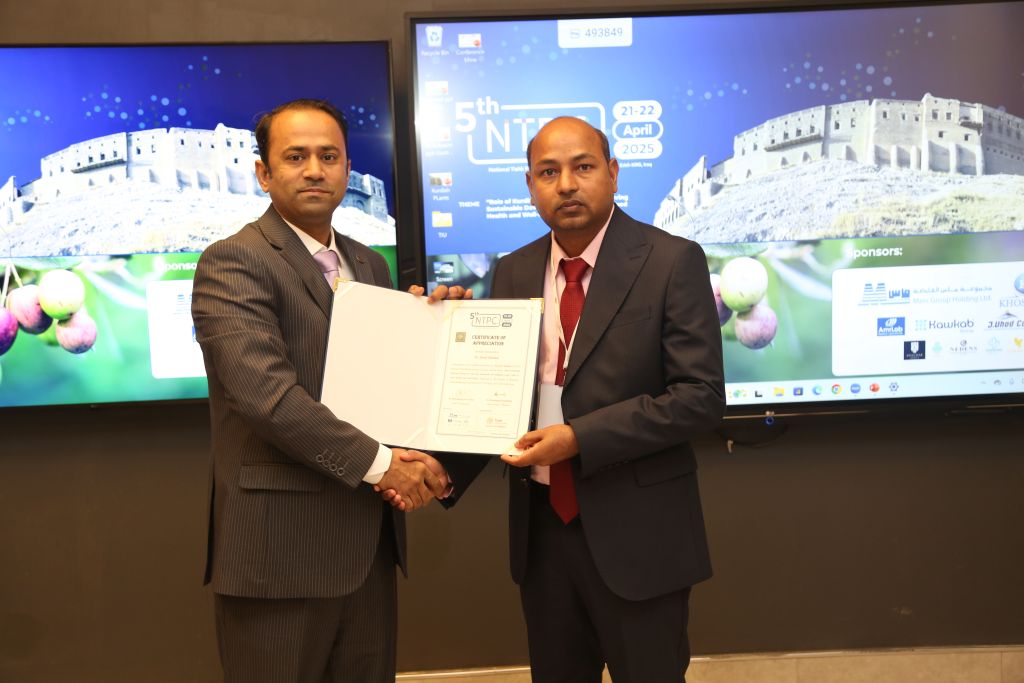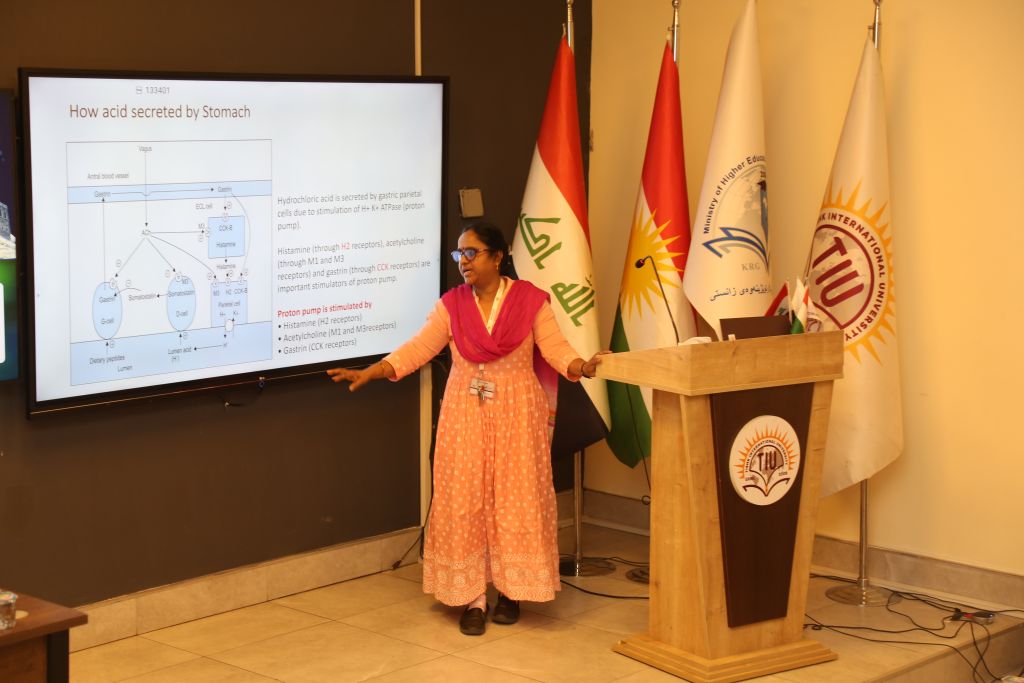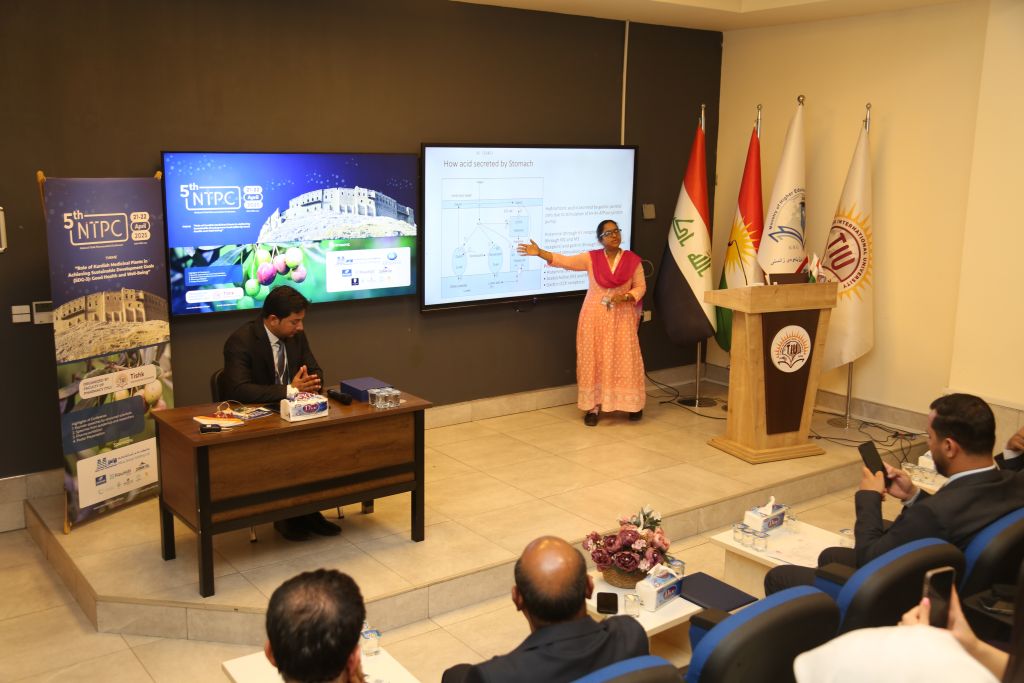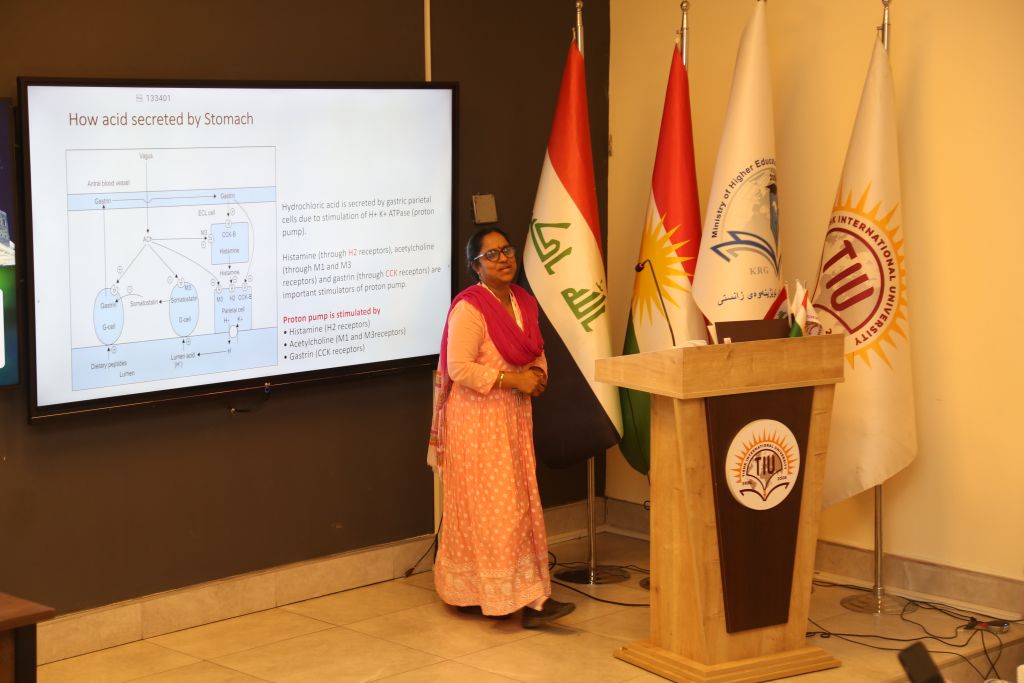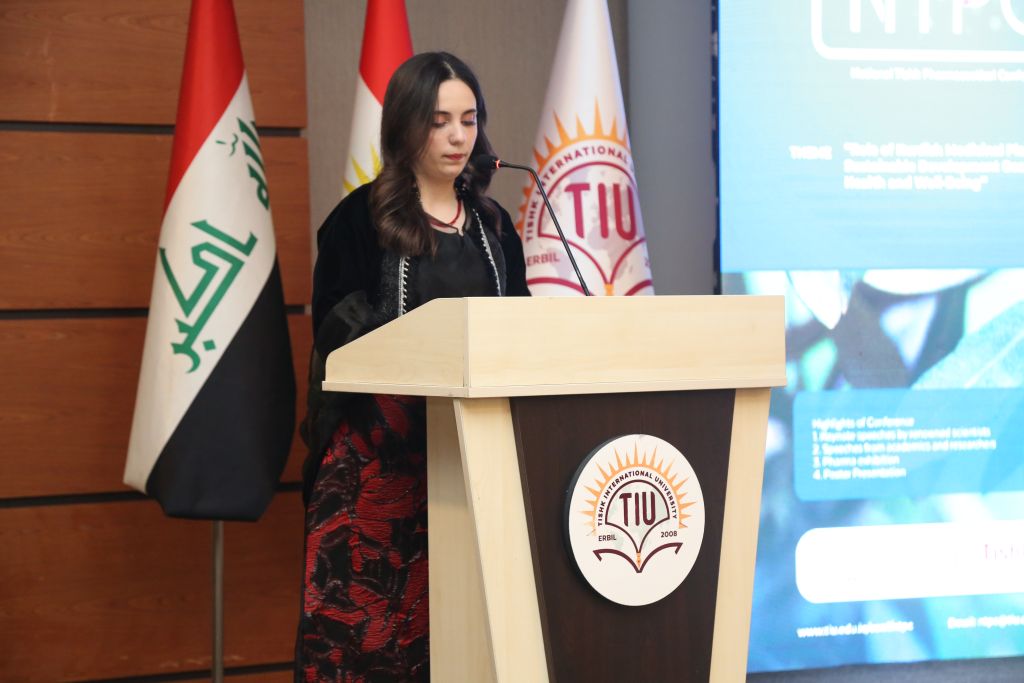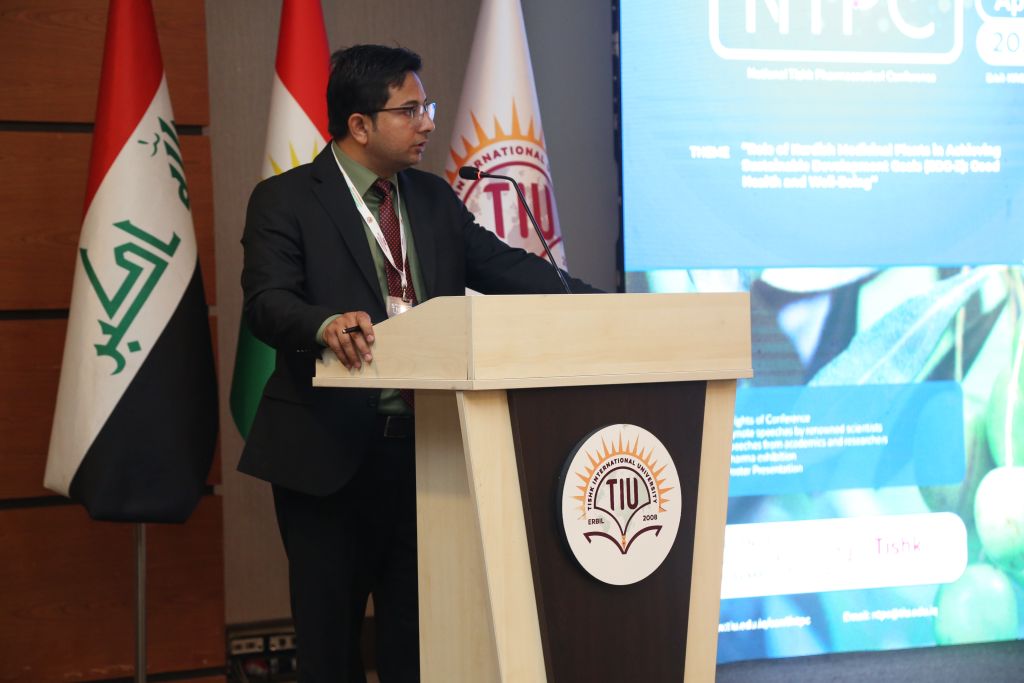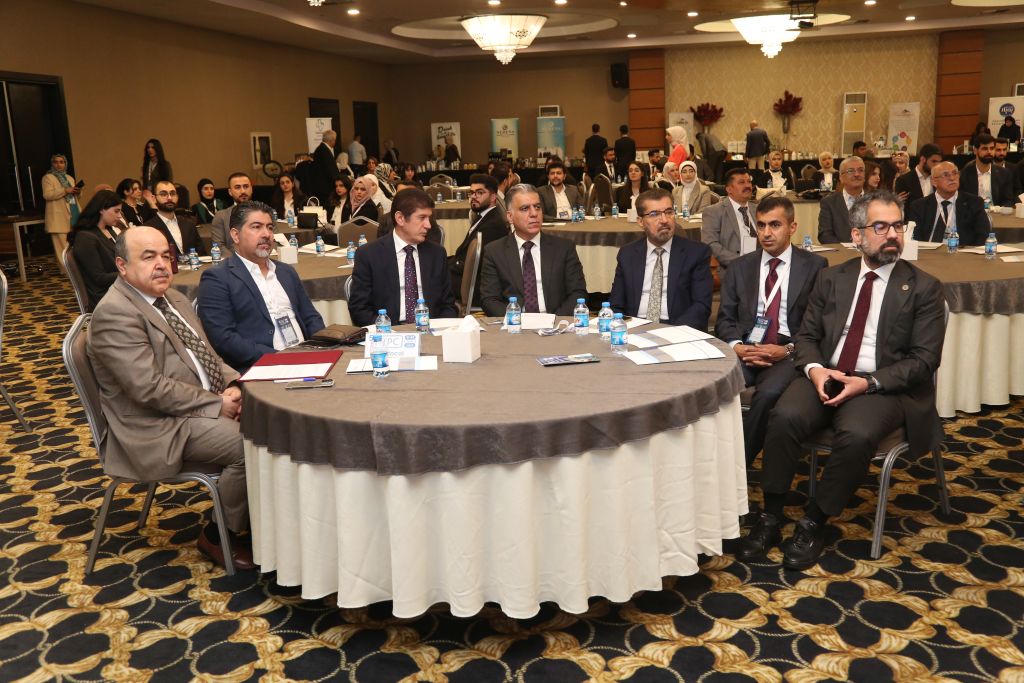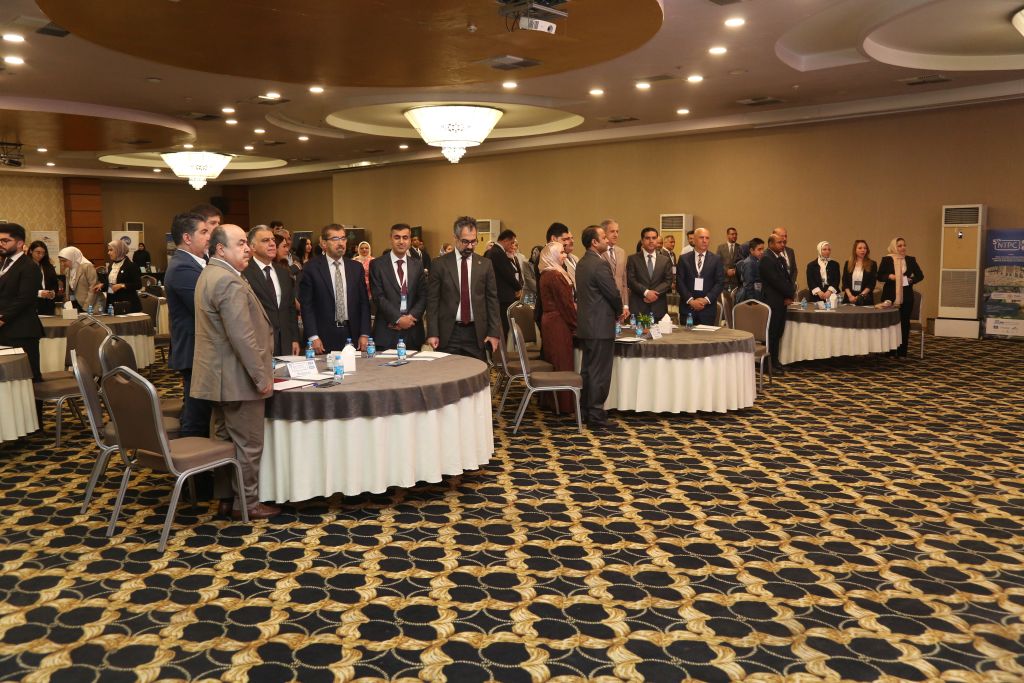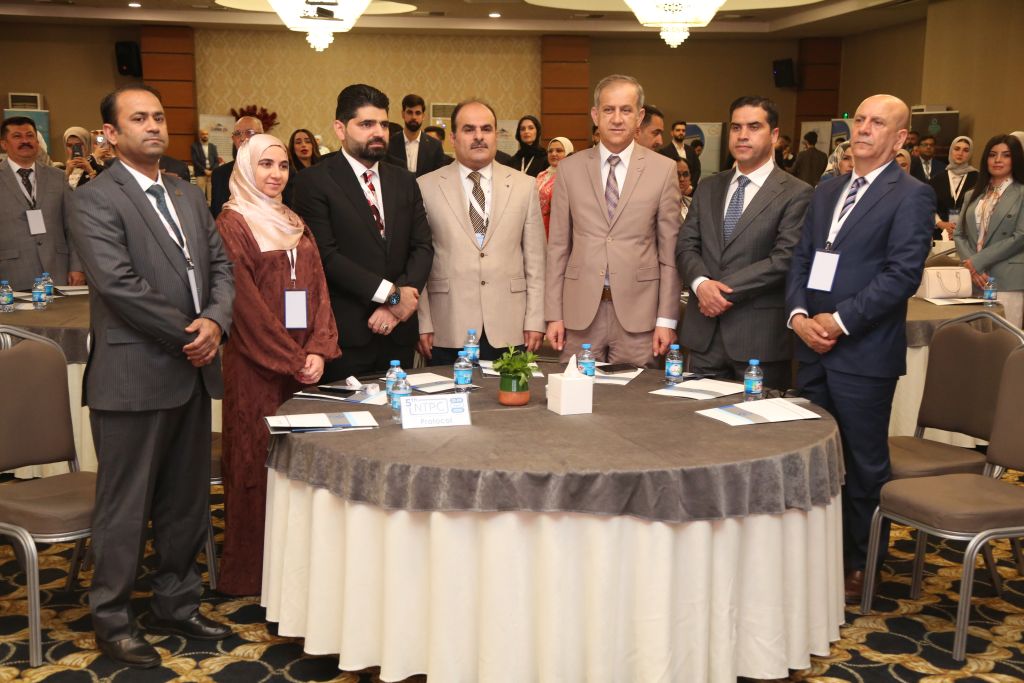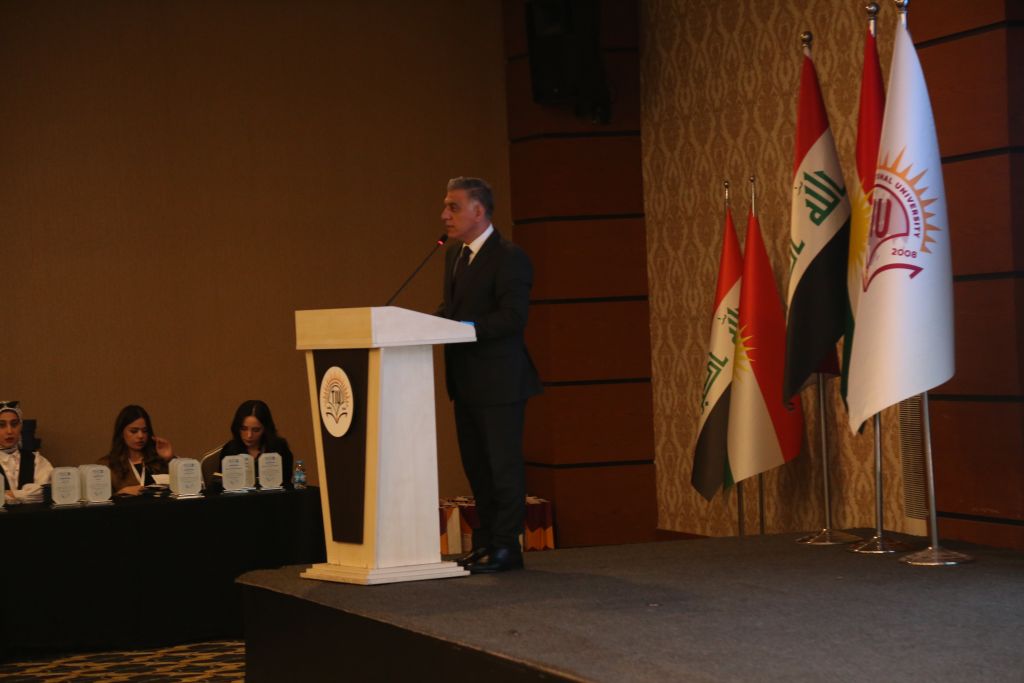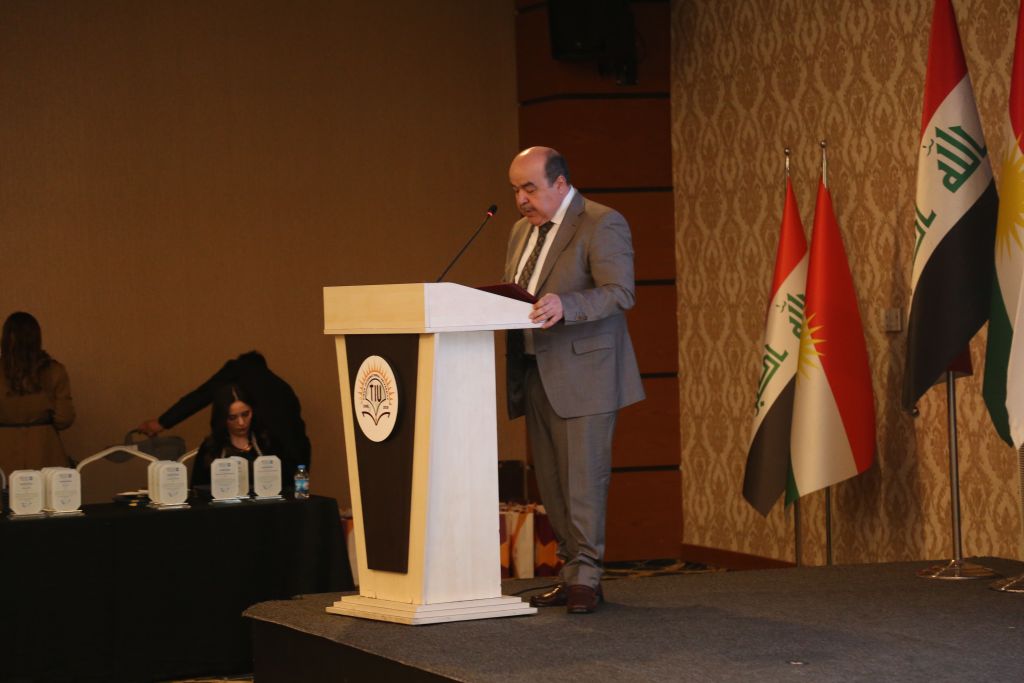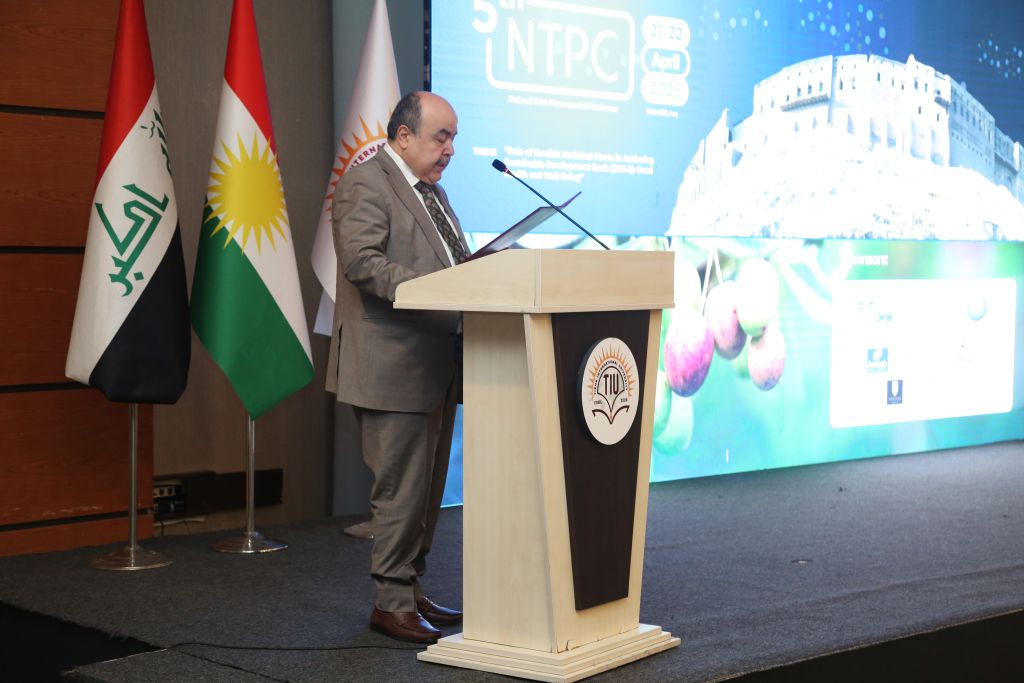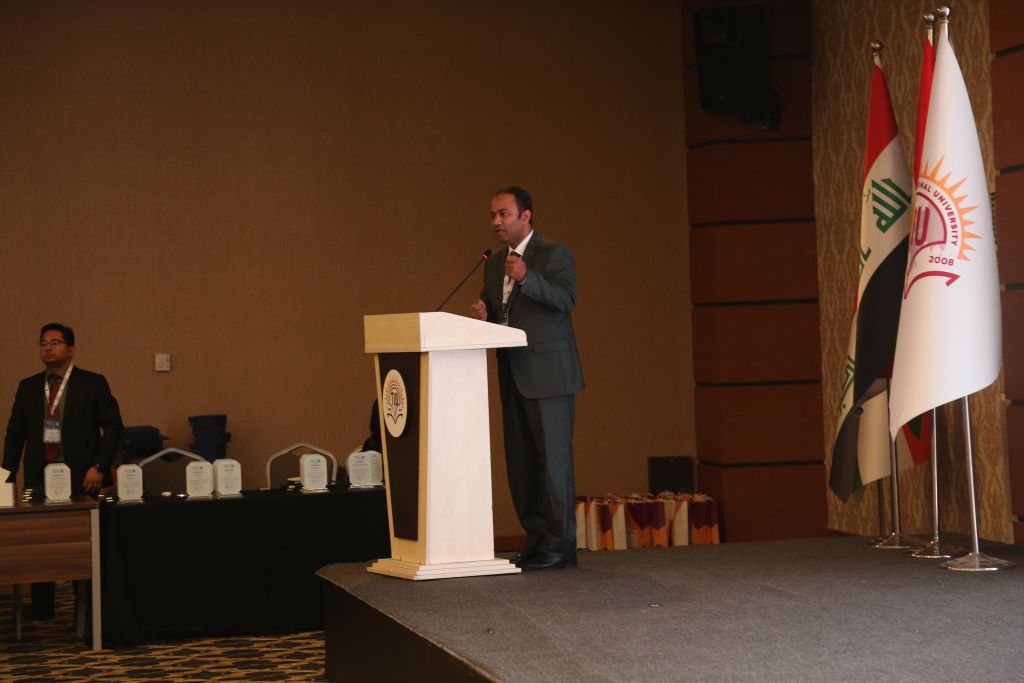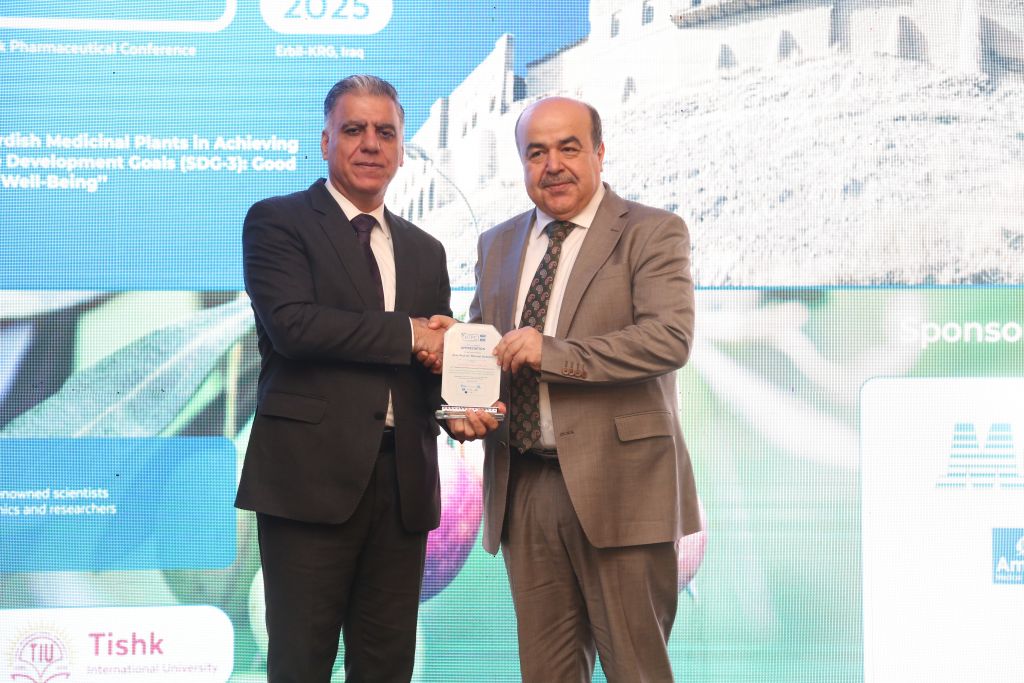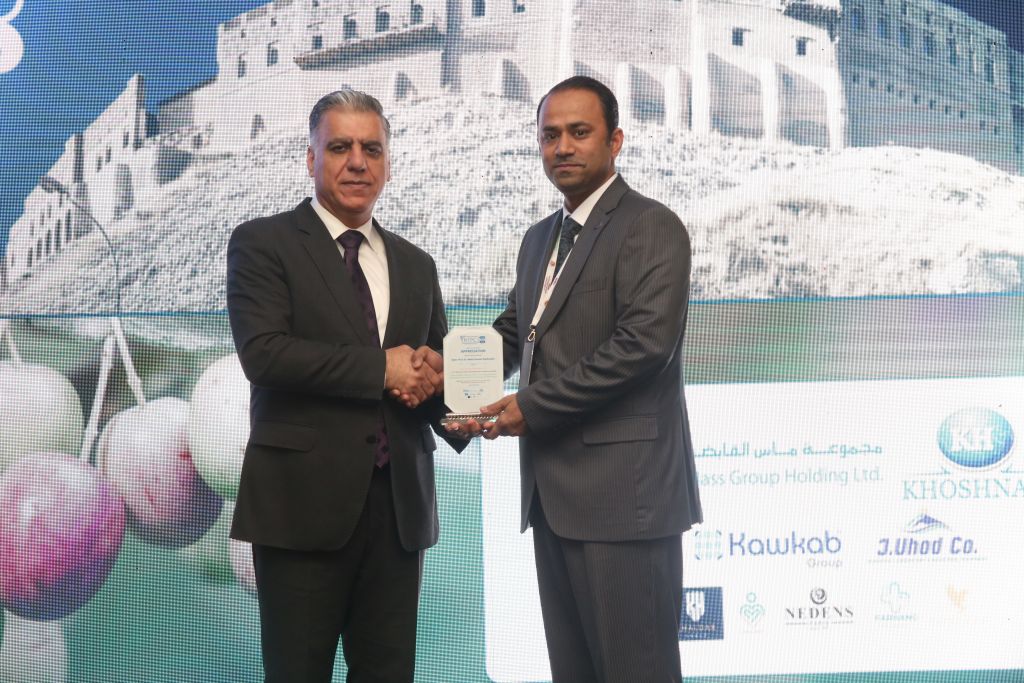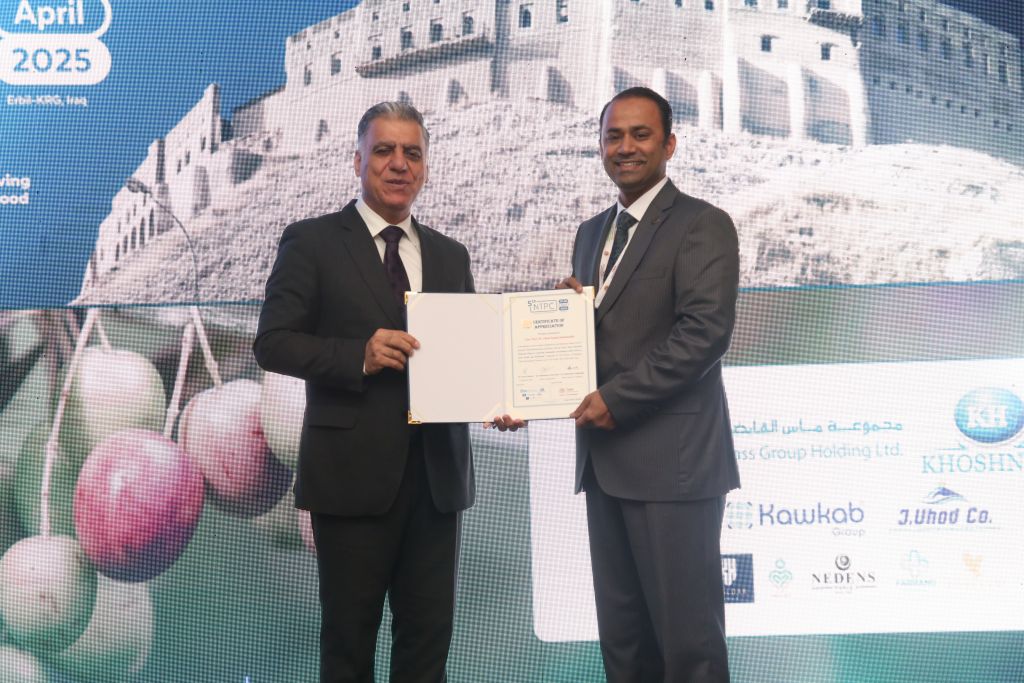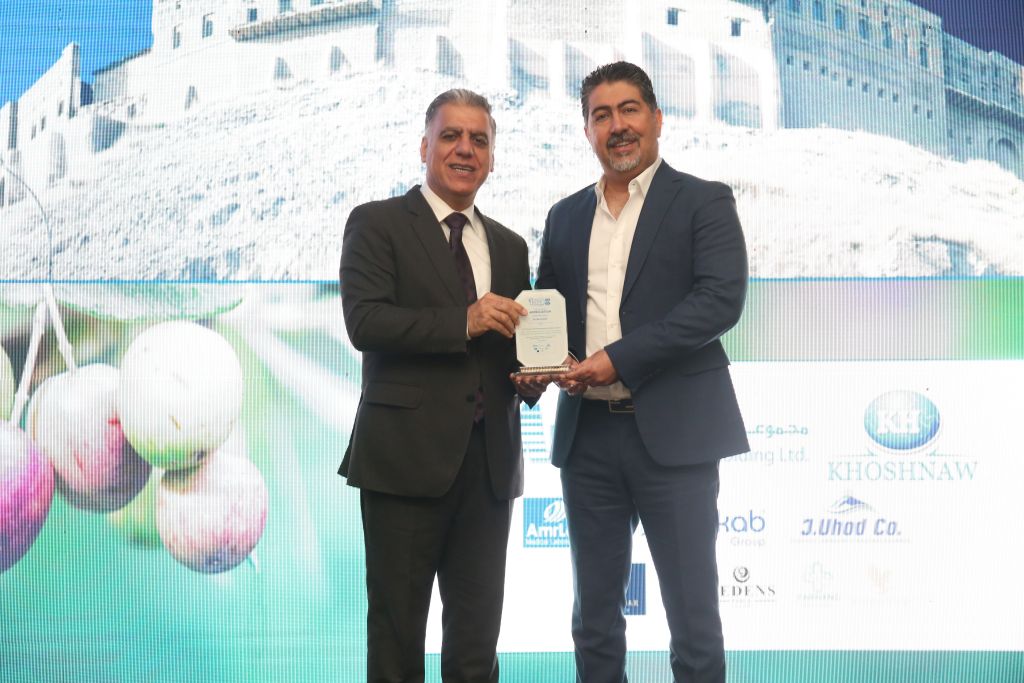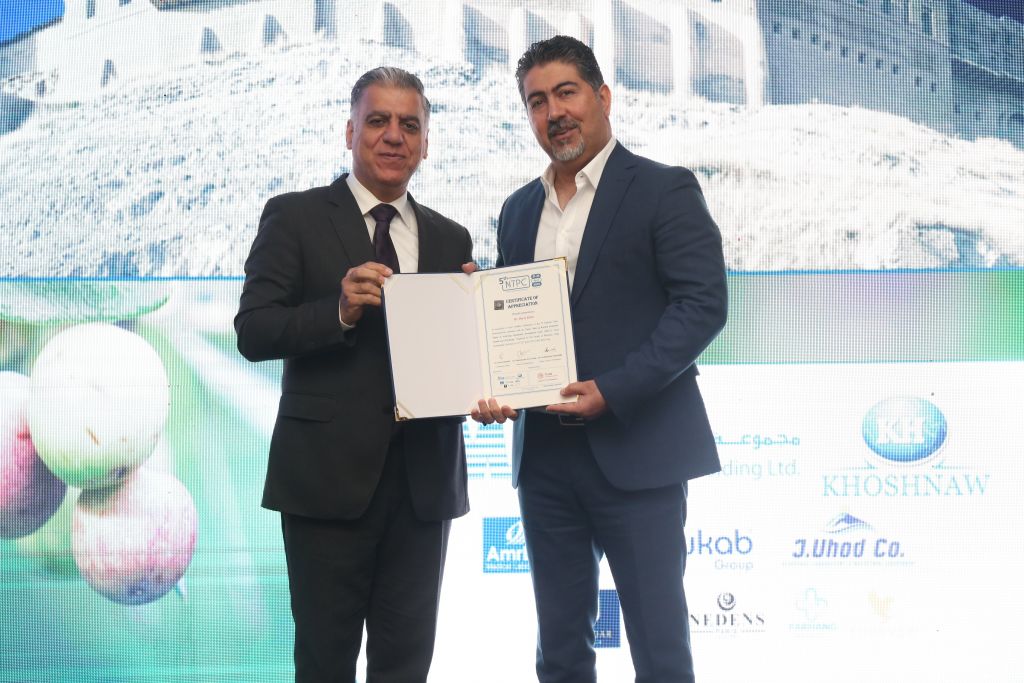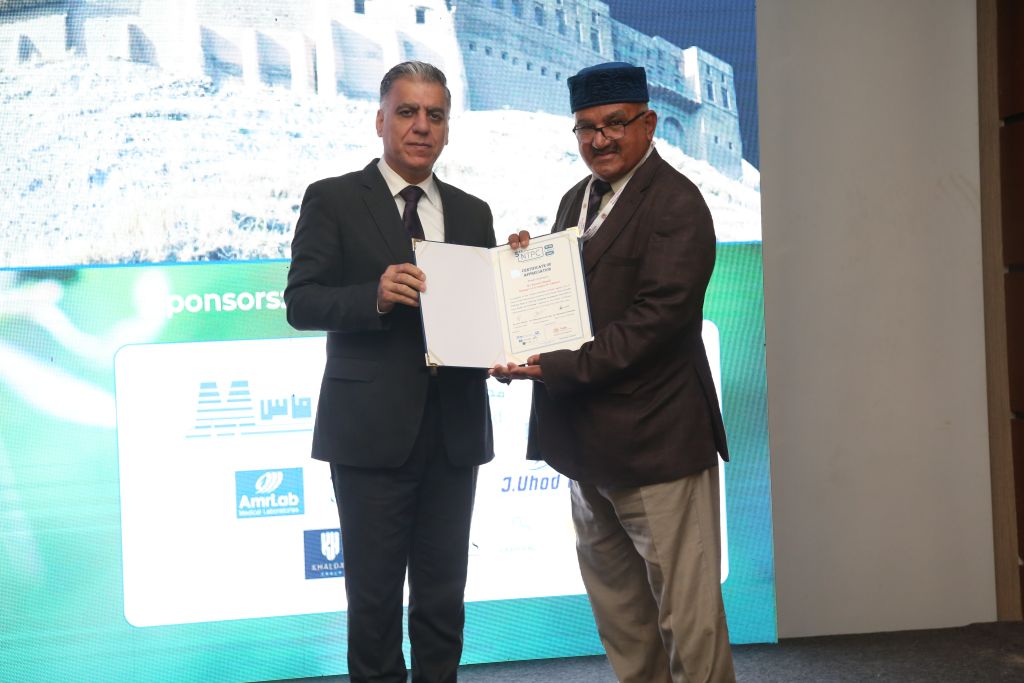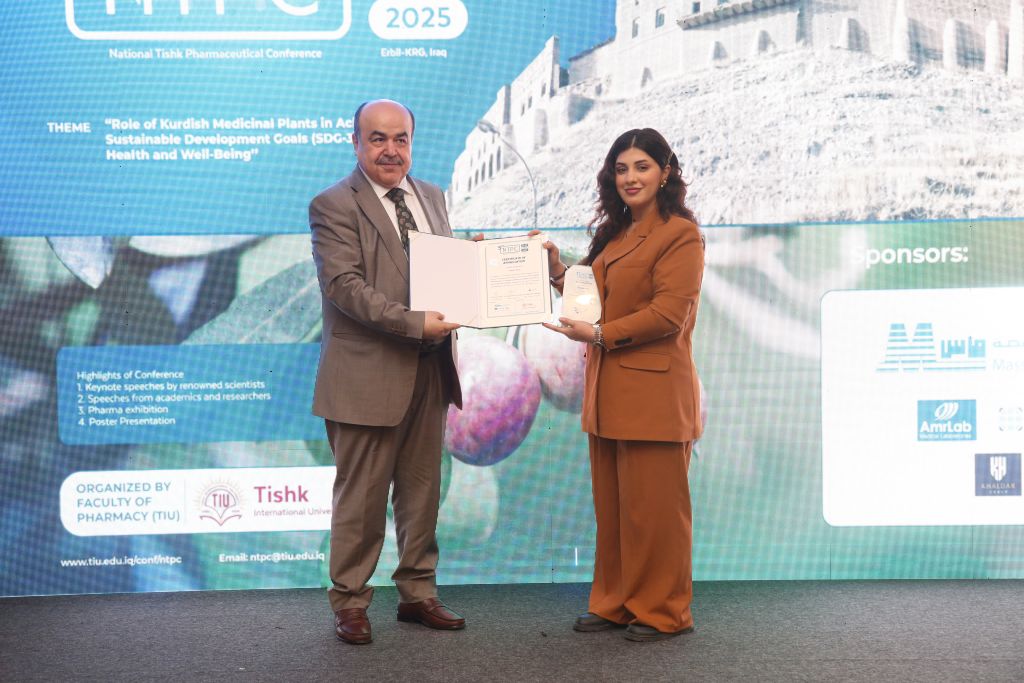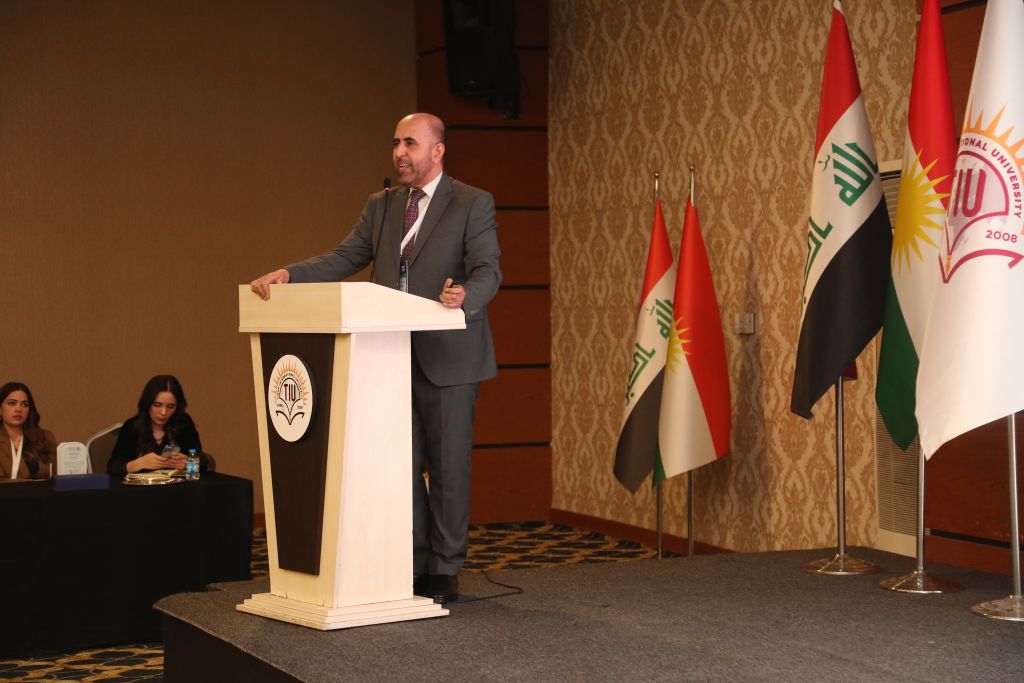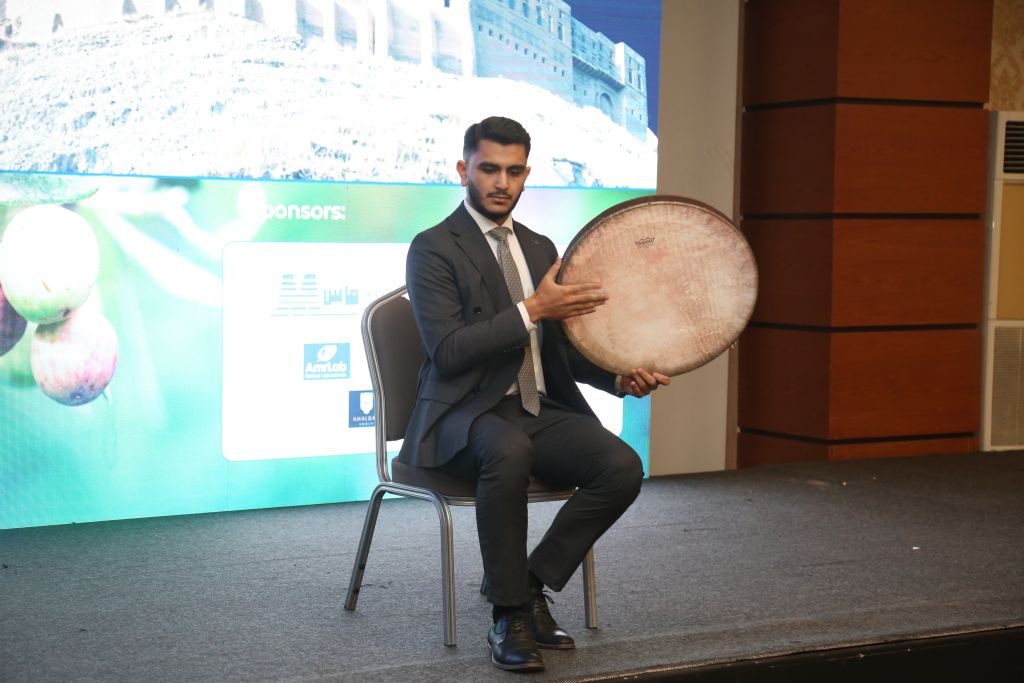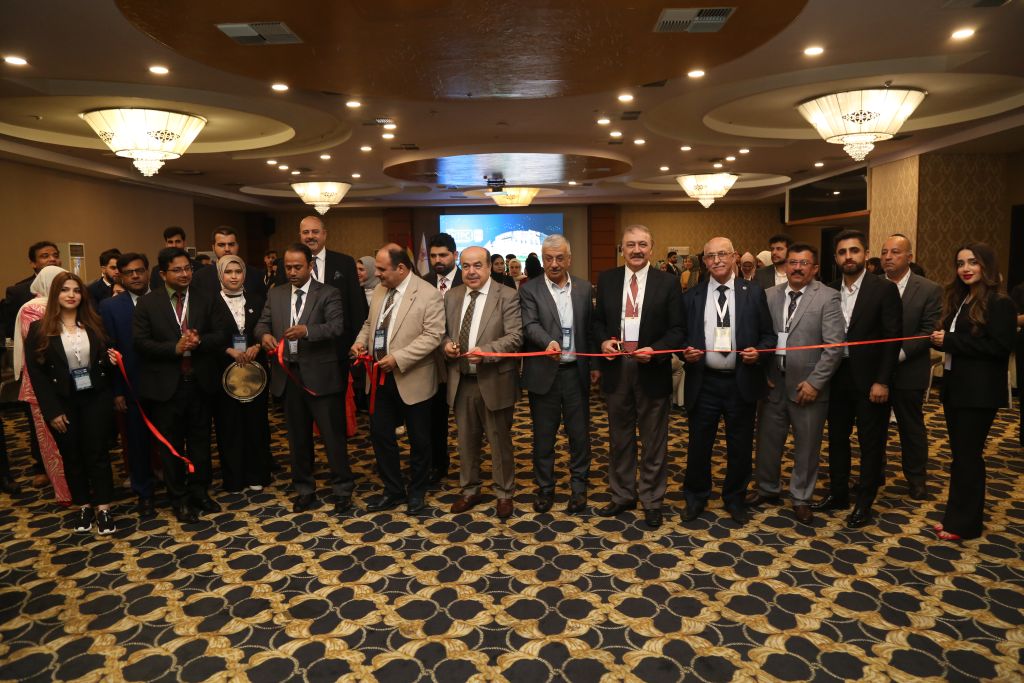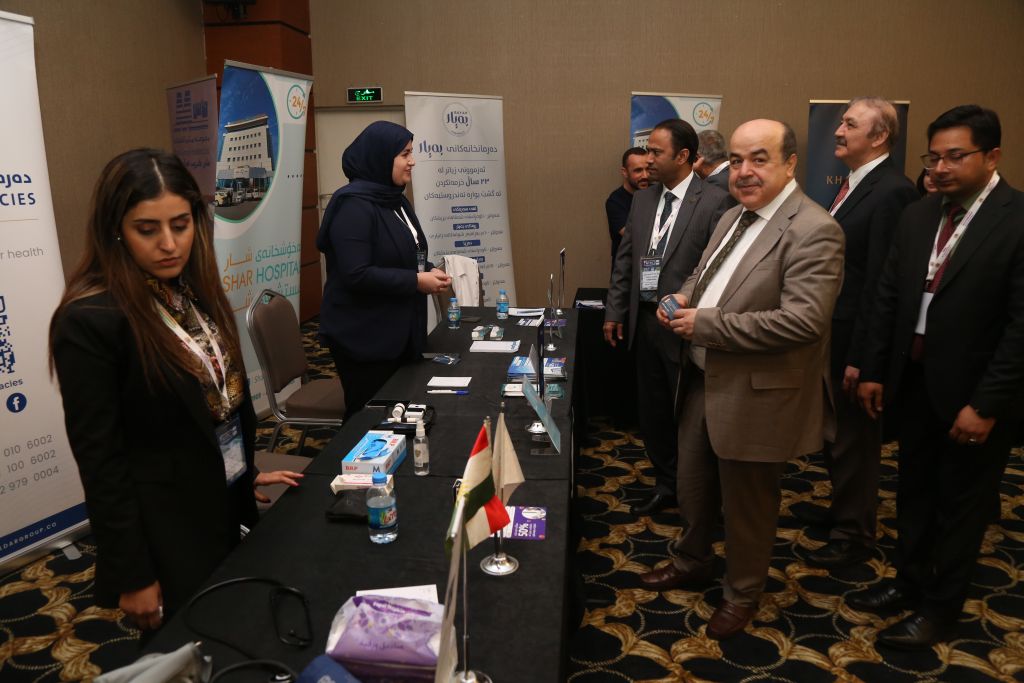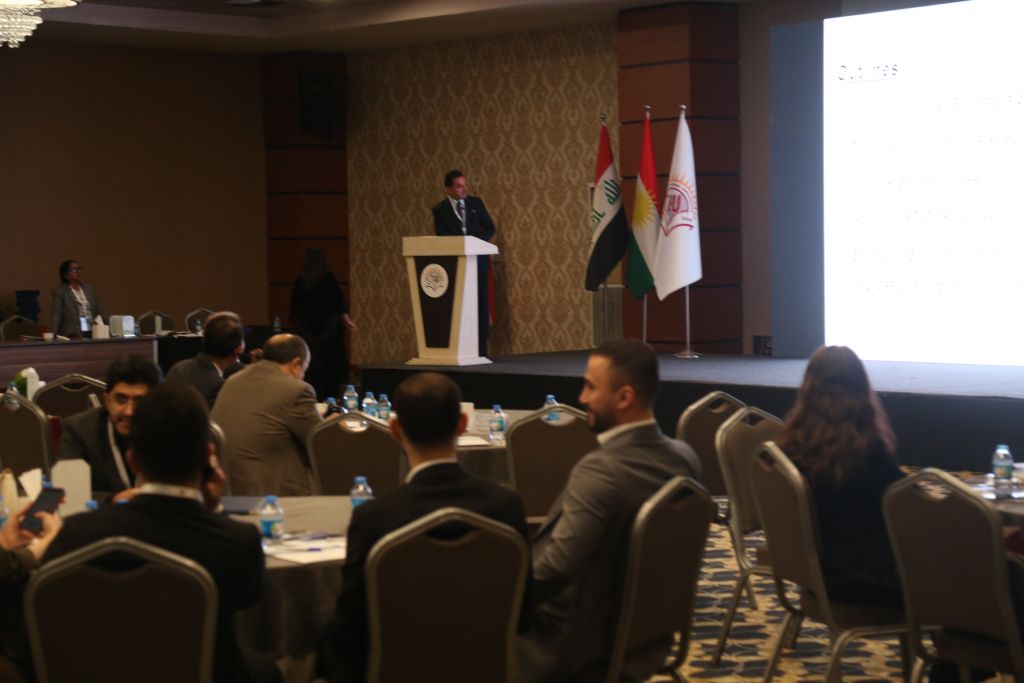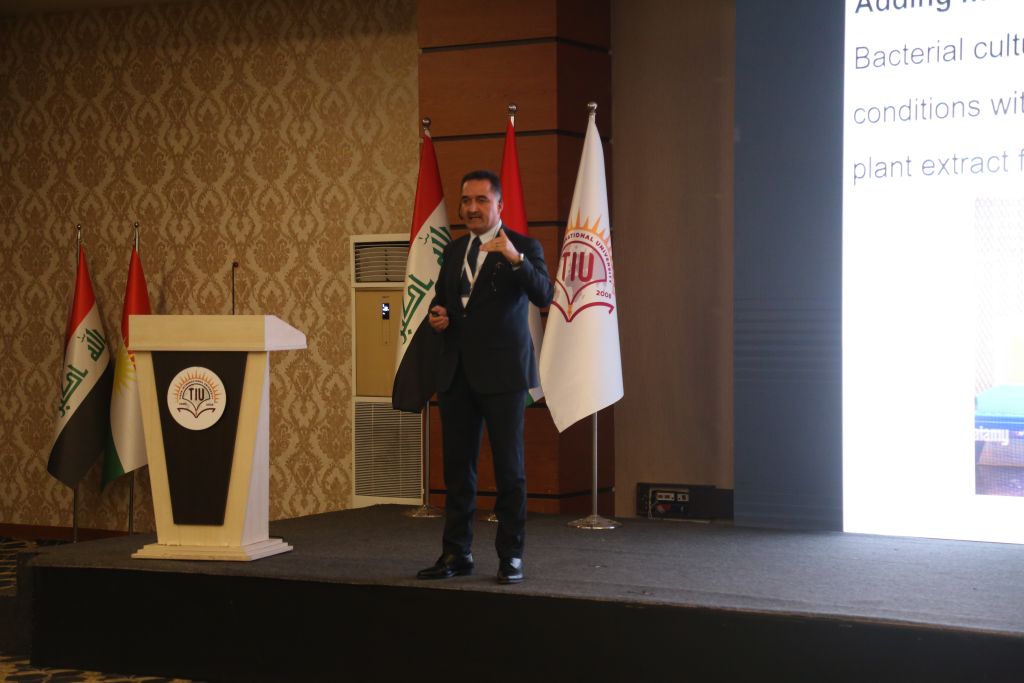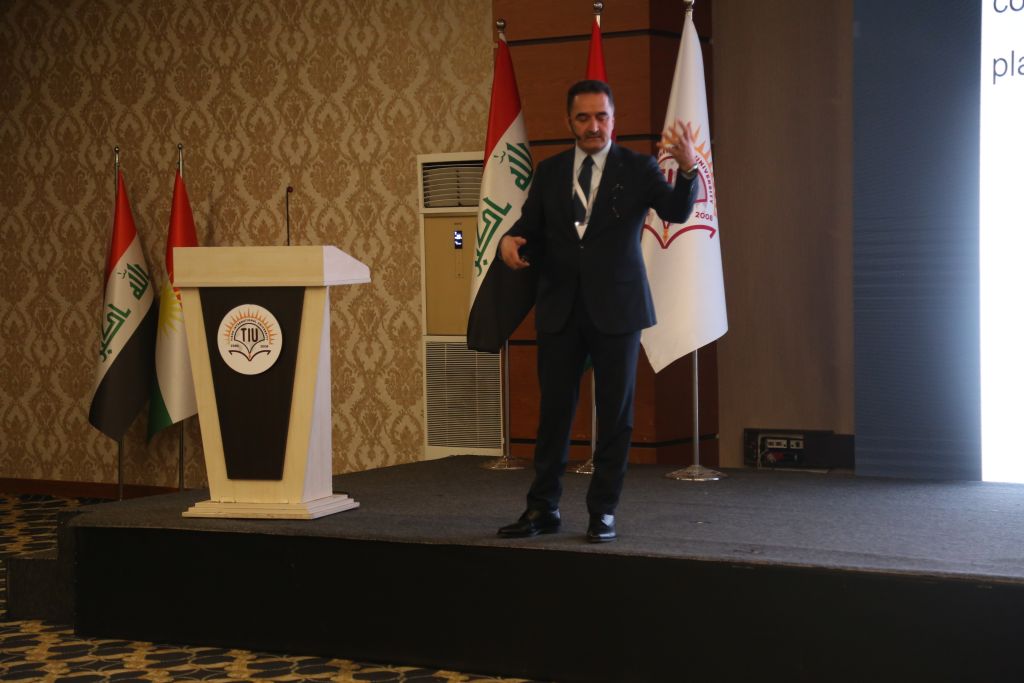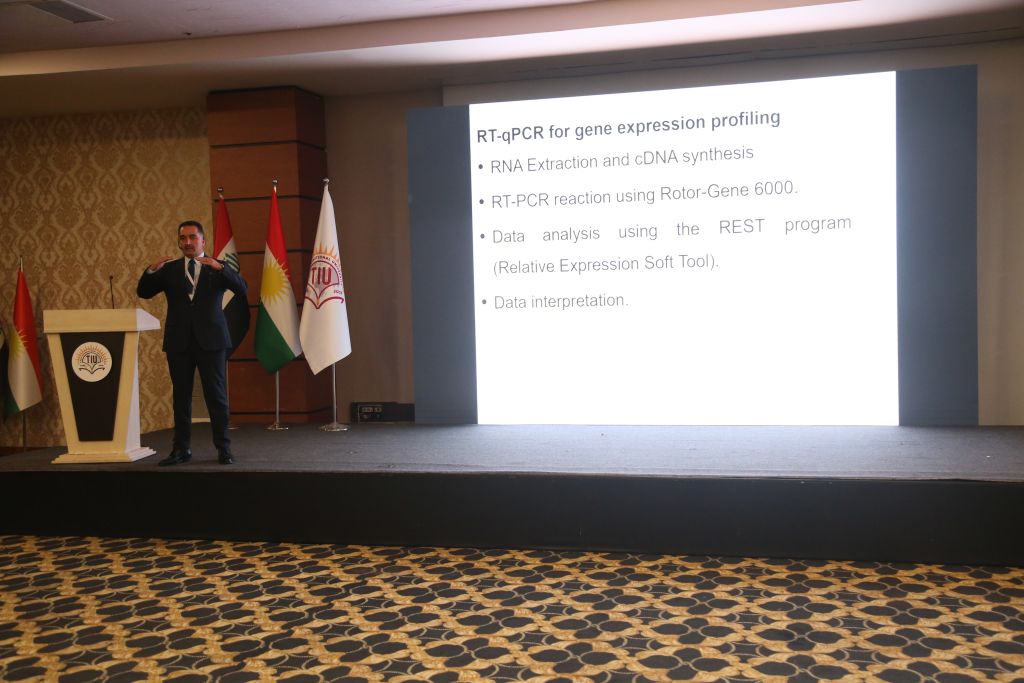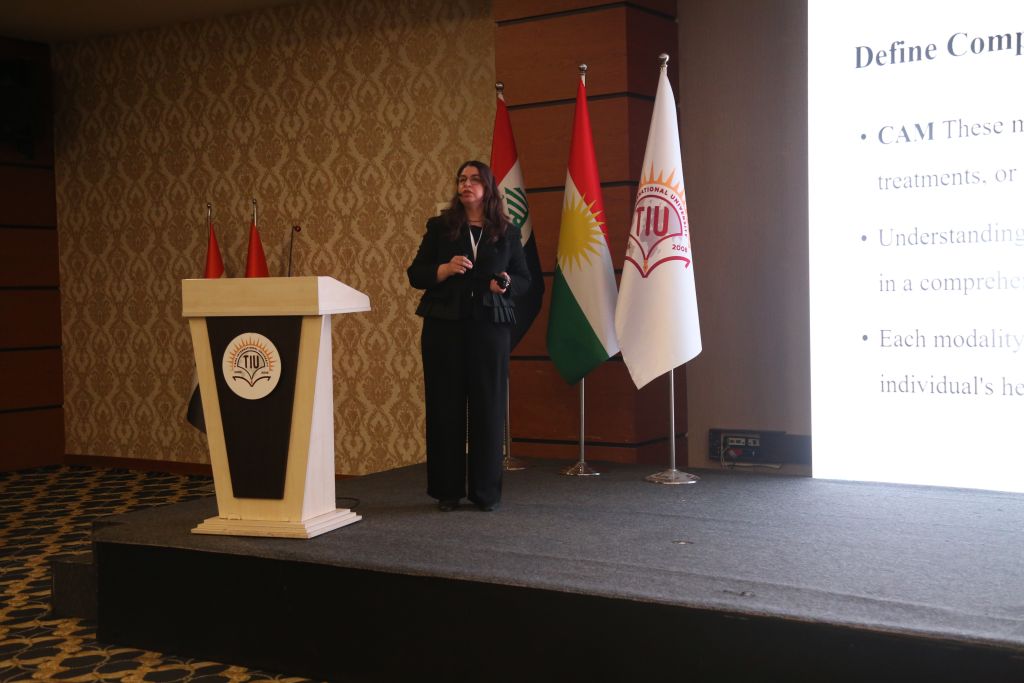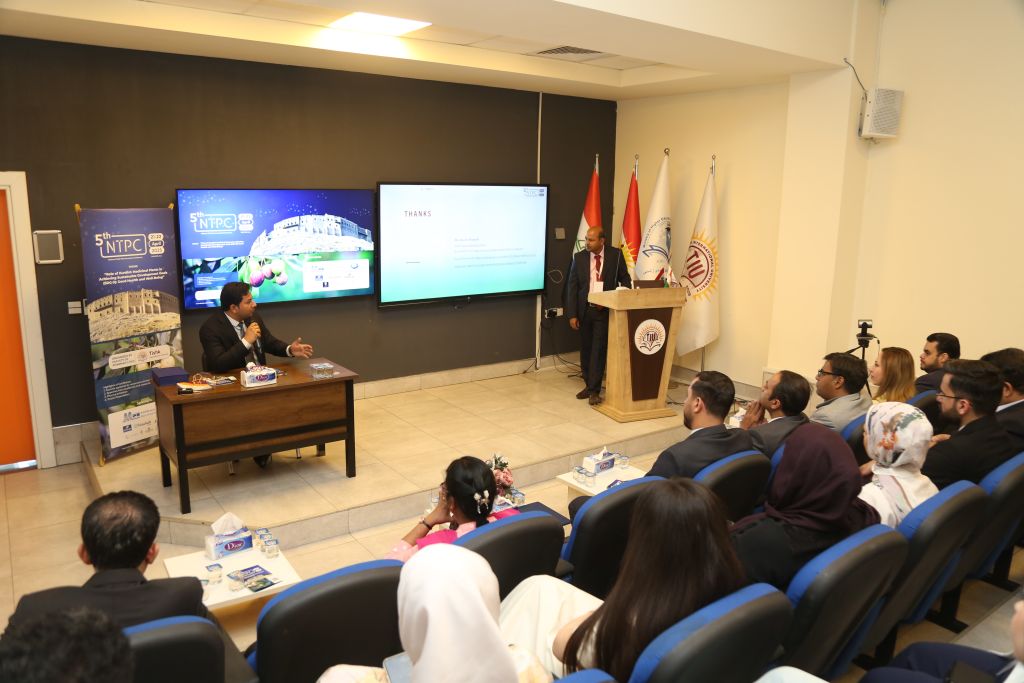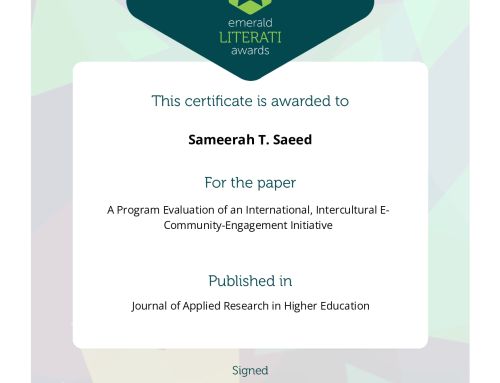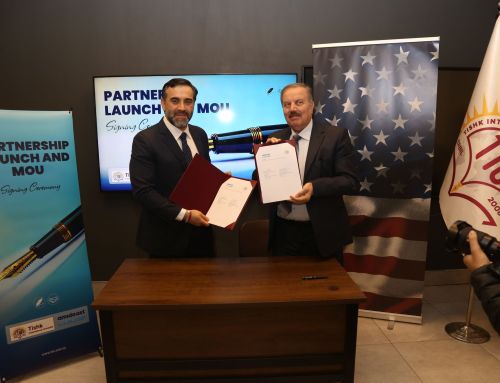The Faculty of Pharmacy at Tishk International University (TIU) organized a two-day conference under the theme “The Role of Kurdish Medicinal Plants in Achieving Sustainable Development Goals (SDG 3): Good Health and Well-Being.” The first day of the event was held at the Dedeman Hotel, while the second day took place at the Faculty of Pharmacy, TIU.
Day 1: Dedeman Hotel Sessions
The conference commenced with a welcome speech by Asst. Prof. Dr. Mohammed Javed, Head of the Pharmacy Department. He greeted attendees and introduced the event. Prof. Dr. Muhammed Kalar, Representative of the Minister of Higher Education, also welcomed participants. He highlighted the global significance of herbal plants and their strong alignment with SDG-3.
Asst. Prof. Dr. Muhammed Ozdemir, Vice President of TIU, expressed appreciation for the Faculty of Pharmacy’s efforts. He emphasized the growing importance of herbal medicines. Asst. Prof. Dr. Abdulsamad Salahuddin, Dean of the Faculty of Pharmacy, extended a warm welcome. He provided an overview of the faculty’s accomplishments, including its activities, workshops, and recent AHPGS accreditation.
The first session was chaired by Asst. Prof. Dr. Subasini Uthirapathy. Keynote speaker Prof. Dr. Azeez A. Barzinjy presented on “Harnessing Plant Power: A Sustainable Approach to Nanoparticle Synthesis.” Prof. Dr. Salah Tofik Balaky, the second keynote speaker, provided insights on “Gene Expression Profiling Using RT-PCR to Investigate the Effects of Medicinal Plant Extracts on Bacterial Toxin Gene Expression.”
The second session, led by Dr. Ahmad Hamdy, featured Asst. Prof. Dr. Lana Yousif. Her seminar was titled “Complementary and Alternative Medicine.”
The third session was chaired by Dr. Kamaran Javed. It began with an online Zoom session featuring Prof. Fatma M. Abdel Bar, who spoke on “Natural Products: Challenges and Opportunities.” Following her, Mrs. Sawsan S. Al-Rawi delivered a talk on “Natural Therapeutic Interventions for Women’s Health: A Holistic Approach to Endocrine and Hormonal Regulation.” The final speaker, Dr. Abdulwahab Jameel, presented “The Role of Genetic Testing in the Development and Clinical Utilization of Targeted Therapy Medications in Cancer.”
Certificates of appreciation were awarded to sponsors, speakers, organizers, and volunteers. Additionally, the top three students from the Faculty of Pharmacy received recognition for their outstanding academic achievements. The conference also included coffee breaks and a lunch session, facilitating networking and further discussions.
Day 2: TIU Faculty of Pharmacy Sessions
The second day began with a warm welcome from Asst. Prof. Dr. Abdulsamad Salahuddin, Dean of the Faculty of Pharmacy. He summarized the first day’s events and reiterated the conference’s alignment with SDG 3. He also expressed sincere appreciation to all organizers, speakers, and attendees.
Dr. Marwan, representative of the Iraqi Syndicate, extended gratitude to the organizers. He emphasized the historical significance and potential of traditional herbal medicine in public health.
The first session was chaired by Asst. Prof. Dr. Mohammed Javed Naim, Head of the Pharmacy Department. Asst. Prof. Dr. Javed Ahamad presented his seminar on “The Role of Kurdish Medicinal Plants in Achieving Sustainable Development Goals: Good Health and Well-Being.” Following this, Asst. Prof. Dr. Subasini Uthirapathy delivered an insightful presentation entitled “Pomegranate as a Natural Remedy for Gastric Ulcer Prevention: Gastroprotective Mechanisms and Pharmacological Benefits.”
The second session was chaired by Asst. Lecturer Dr. Shajwan Salar. Asst. Prof. Dr. Kamaran Javed delivered a seminar on the “Ethnopharmacological Study of Medicinal Plants Used in the Kurdistan Region of Iraq.” He was followed by Dr. Ahmad Hamdy, Lecturer, who presented “Pan-Cathepsin Impact: Lauric Acid’s Role in Liver Histopathology and FVCO’s Neuroprotective Potential.” The session concluded with a presentation by Dr. Soma Majidi, Lecturer, who discussed “Synergistic Antimicrobial Effects of Kurdish Medicinal Plants: Damask Rose, Thyme, and Stachys lavandulifolia.”
The final segment of the day was a poster session. It featured the graduation projects of fifth-year pharmacy students. This provided a platform for students to showcase their research and engage with professionals.
Asst. Prof. Dr. Mohammad Javed Naim delivered the closing speech for the second day’s session.
“Remember, this isn’t the end—it’s just the beginning of continuing the conversations, building the relationships, and turning the insights we’ve gained into actionable change in our respective fields.”
“Thank you again for your participation, and I hope to see all of you at our future events.”

